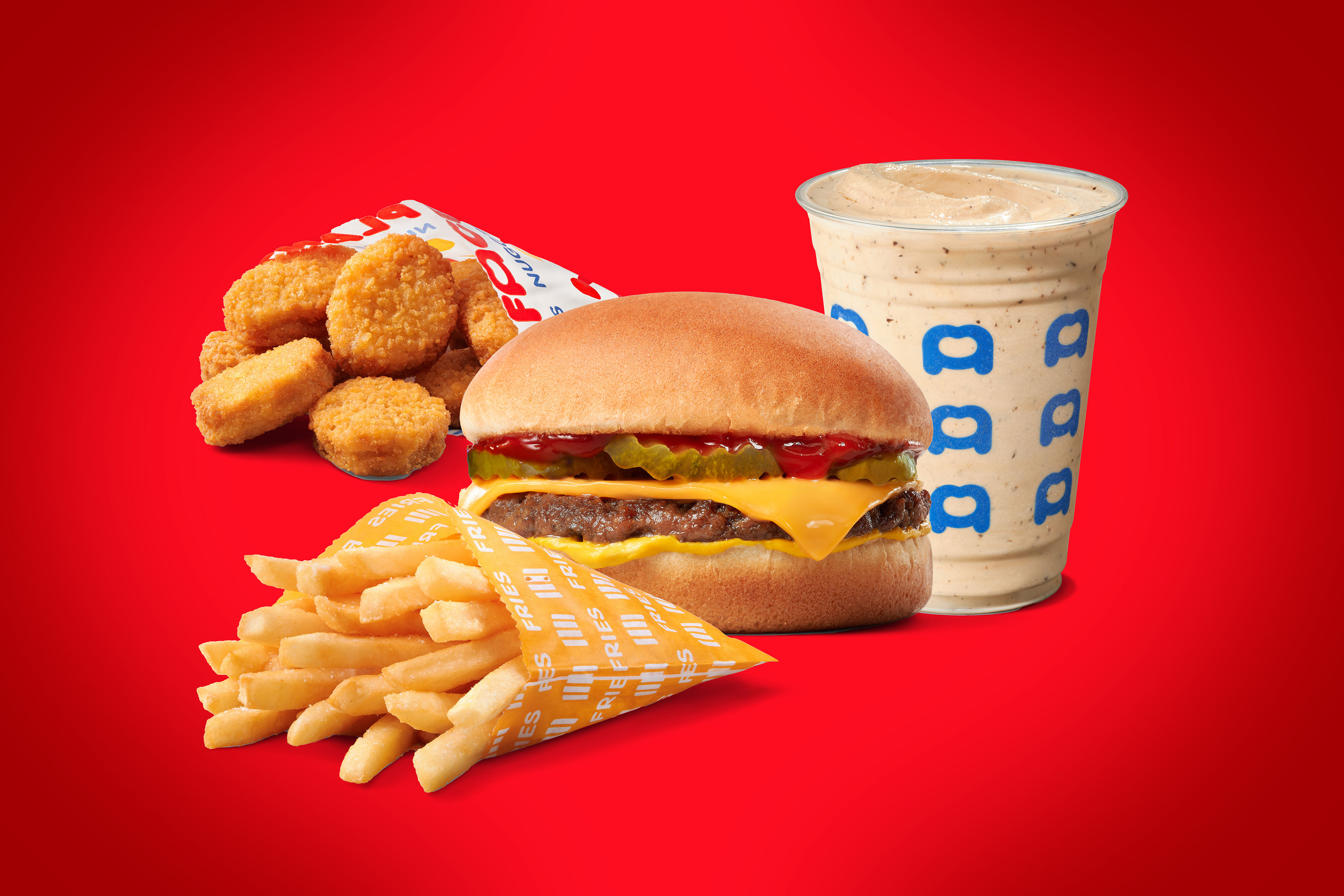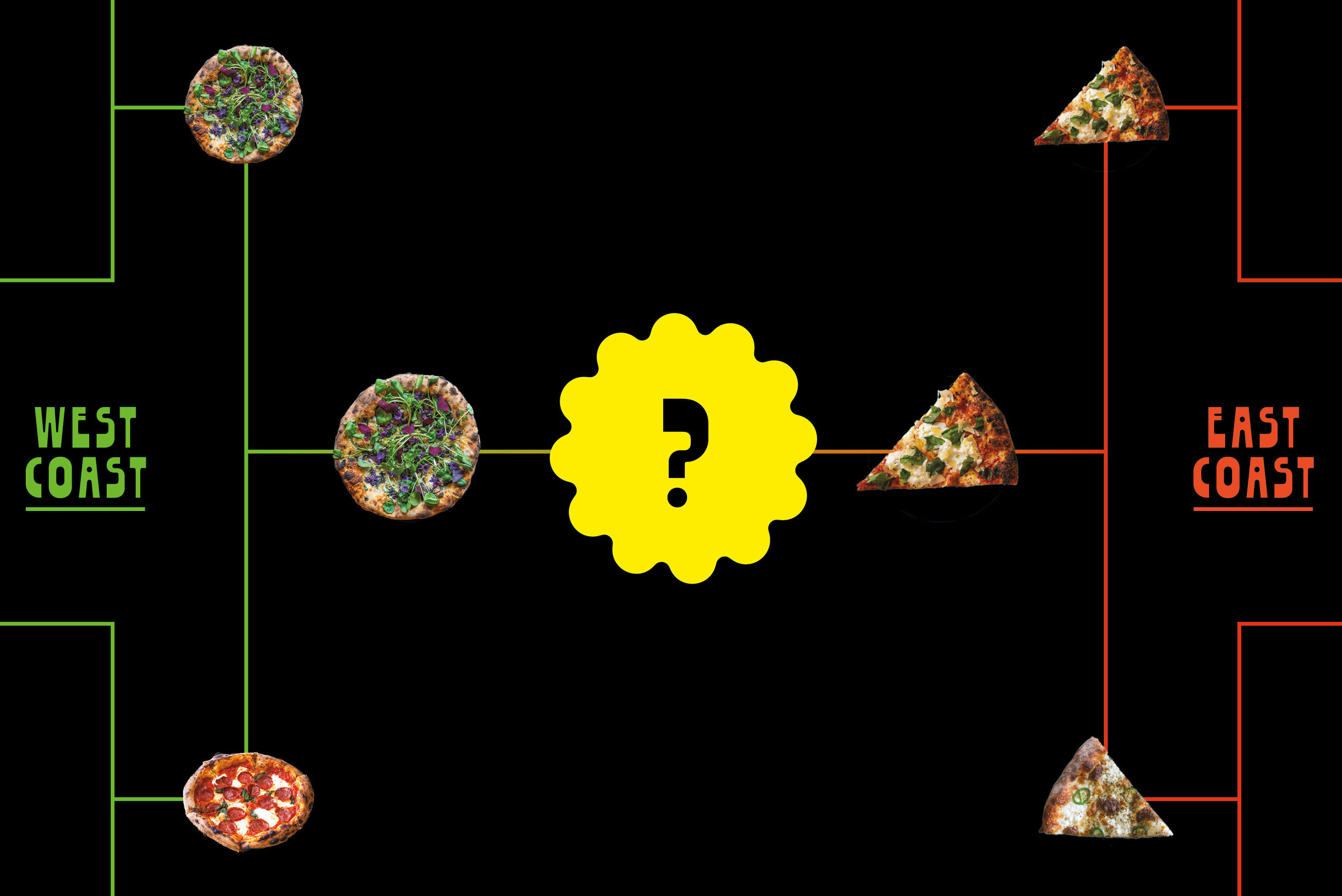Modern Art
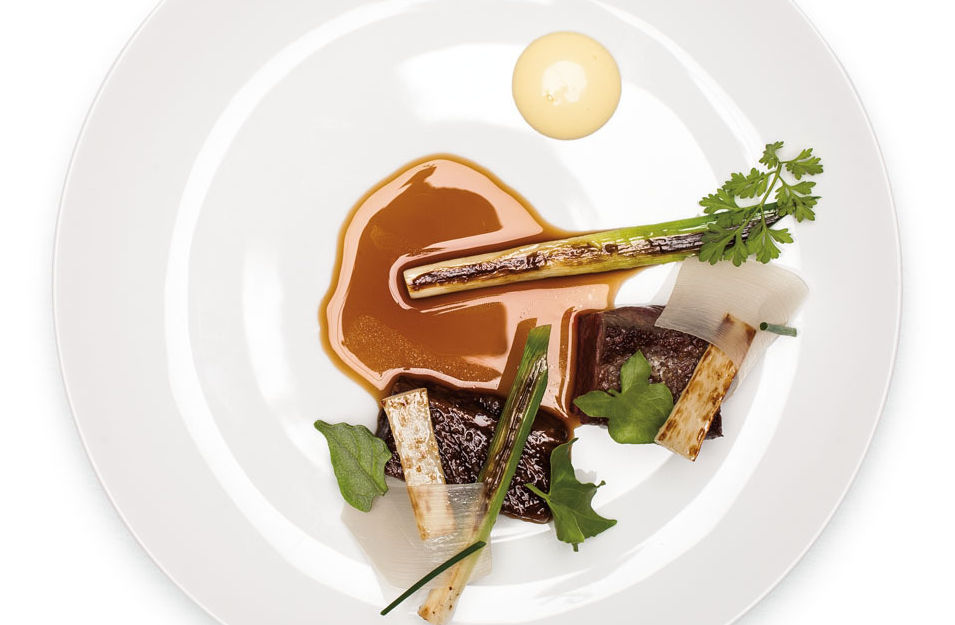
Image: Stuart Mullenberg
Three things you need to know about Justin Woodward: he’s a furious mountain biker, he’s a metalhead, and he peels asparagus as if his life depended on it. Don’t let his wire-rim glasses and cabinet of hydrocolloid powders fool you. Woodward may seem like a science geek, but he tackles a pile of fresh green spears like Uma Thurman training in Kill Bill. It takes painstaking determination to skin a razor’s edge from each shoot to preserve the delicate sugars lurking below. A sharp Japanese paring blade is his weapon; clumsy vegetable peelers just won’t do. Woodward is an absolutist who thinks big—never mind Castagna’s perennially half-empty dining room. As he puts it: “This is how Joël Robuchon cleans his asparagus; this is how Alain Ducasse cleans his asparagus; this is how I clean my asparagus.”
Hours later, the spears arrive at the table like a vegetable fantasy in double vision: two sculpted bundles of fern green, one huddled beneath a giant sorrel leaf, wilted slightly to cling with bright, sour purpose. Nearby, clumps of pine needles throw forest perfumes, and a broth of beefy asparagus jus pools in simple splendor. On the perimeter, béarnaise sauce looms like a dagger of richness in this pure company. It’s signature Woodward: modernist dress, Japanese brains, and Oregon bones.
EAT THIS NOW
- Three courses ($55)
- Tasting menu ($95)
- Off-the-menu dessert flight ($35)
At age 31, this Boston native possesses dreams, skills, and drive matched by few local chefs. Unlike Portland’s celebrated brood of self-taught rebels, he earned pastry stripes at Manhattan’s famed modern food lab WD-50, logged two months at Nordic game-changer Noma, and served as trusted Hand of the King to Matt Lightner, the culinary radical who departed Castagna in 2011 and promptly won two Michelin stars at his New York restaurant, Atera. Woodward scours books and blogs to track food-world ideas and gleans flowers, leaves, and rare botanicals from the restaurant’s lush sidewalk garden. In this celebrated food city, it’s safe to say he’s the best chef you’ve never heard of.
That needs to change. For two years, he has been lost in the shadow of Lightner, an artist who has redefined avant-garde eating with wild botanical dioramas. But Woodward has emerged with his own voice: a budding modernist poet juxtaposing textures, colors, and concentrated sauces into simple, strange beauty—with a minimum of molecular whizbang. He might not hit the Lightner highs (few chefs on the planet do), but he’s no “Lightner lite,” either. He’s the only Portland chef creating Michelin-level food.
Come with an open mind and an evening to burn. The room is quiet and a bit bistro-dated, and nervous servers describe dishes faster than Eminem. Exquisite food is the focus, pure and simple. Far from Portland’s freewheeling small-plate, comfort-food revolution, Castagna choreographs every milli-bite in tiered dishes. You can master Woodward 101 in three easy courses—two options per category, perfect for sharing, and, at $55 total, a steal for this level of cooking. Or you can settle in for the night (seriously, block out four hours) and embrace the tasting menu for $95. Either option includes a bonus: shockingly good dinner rolls dispatched with smoky whipped lardo.
THE ONLY PORTLAND CHEF CREATING MICHELIN-LEVEL FOOD.
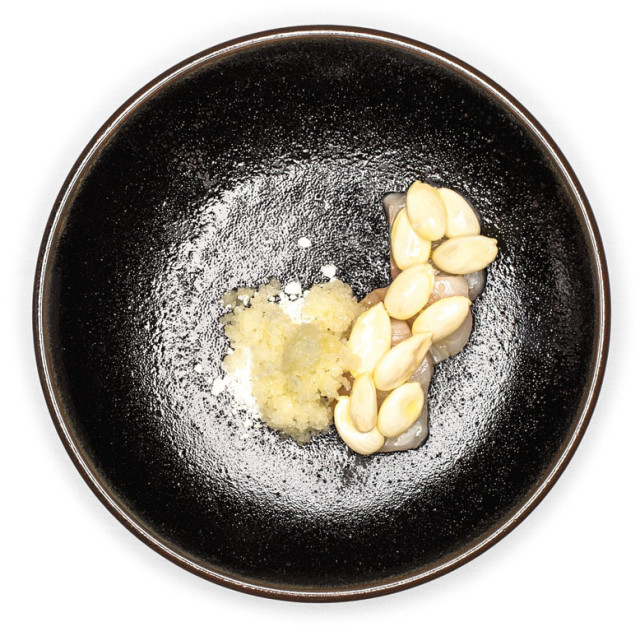
Lime-cured black cod with the juicy pop of young almonds, green apple granita, and snaps of wild ginger powder
Image: Stuart Mullenberg
Vegetables are Woodward’s stars, and early courses worship them. Ramps turn up blanched, raw, and fried in the same dish. Beets are not just roasted but punched into neat rings, artfully sheened in ruby-red juice, set over sweet onion confit, dusted with a fine crush of frozen horseradish mousse, and finished with fat crumbs of smoked beef powder. It’s a culinary illusion—an entire meal of roots and cow, heaven and earth, and maybe even a London pub, unfurling in every bite. It’s as good a dish as you’ll find anywhere, New York to Spain, and it shows where Woodward can go.
On the ever-shifting menu, fish is always treated with respect. Silky cured cod arrives like sashimi in 3-D, burrowed beneath big, pearly green almonds and icy beads of green apple granita. But the kitchen’s surf-and-turf obsession yields mixed results. The best examples are excitedly out of the box, like a gorgeous rib eye dancing with caramelized mussel jus and an oyster emulsion that tastes straight from the tide pool. The worst are boldly timid experiments best left in the test tube, among them a smoked pork loin sauced with yeast, clams, and garlic. The clunkers extend to the oddball starter snacks that dig a little too deep into the chemistry set, including a “puffed beef tendon” stickier than the Justice Department.
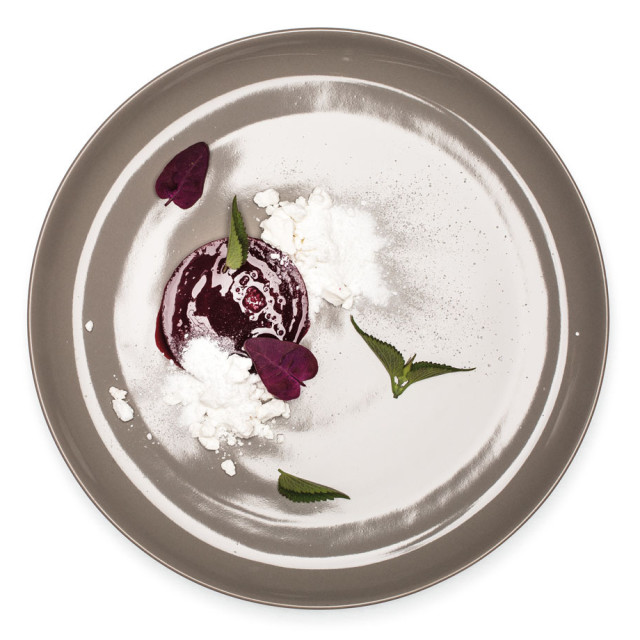
Glazed roasted beets, onion confit, frozen horseradish mousse dust, smoked beer powder, and just-picked garden herbs
Image: Stuart Mullenberg
Even The White Album had its “Revolution 9.” Accidents will happen (and should happen), especially when you’re taking risks. But when the accomplished desserts arrive, there’s no doubt: Woodward is an artist in bloom. Each is a miniature jewel box, flavor saturated and color coded to stun. That includes a grand tuft of “30-second” sponge cake (an El Bulli legend) perched precariously over limey custard sauce, sparkling with anise hyssop ice the color of a putting green. Even more sublime is a clear curtain of rose geranium candy wildly balanced over intense bites of grapefruit three ways: sorbet, pound cake, and custard. The off-the-menu “dessert flight” is one of Portland’s best-kept secrets. Now you know. What are you waiting for?
Locals forever ponder the big question: will Portland ever support a fine-dining restaurant? Now is the time to answer. Woodward is giving his all. Just listen to the man talk: “I’m obsessed with this career. I love cooking, cleaning vegetables, searing meat, making quenelles of ice cream, searing fish just right. I get shivers just thinking about it. Cutting chives, watching them pop off the blade is instant gratification—a reason to feel good. I’m in the kitchen 16 hours a day. I don’t take off my apron and become a different person. I give my entire life to this.”
Believe it.

